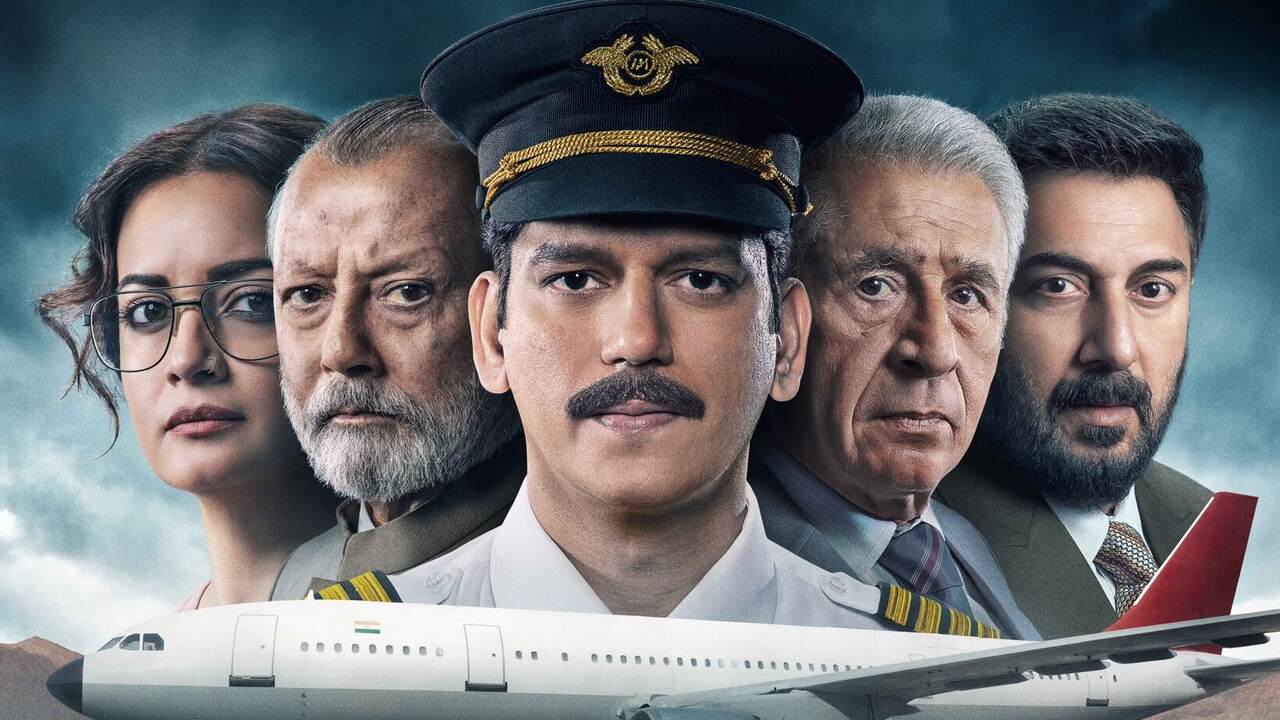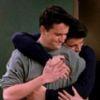On 24 December 1999, Indian Airlines flight IC 814 was hijacked and taken to Kandahar in Taliban-governed Afghanistan. The situation lasted for seven days. The passengers and the crew members suffered great psychological distress. This incident, today, is remembered as "the longest hijack in Indian history," but IC 814: The Kandahar Hijack asks, "Why did it take so much time to rescue the people? Why did this attack happen? Who was responsible for this operation?" Any other film and any other filmmaker would have probably not bothered asking these questions. He would have made a shallow, barely watchable mainstream film like Yodha. Anubhav Sinha, though, is not like those mainstream directors. There was a time when he used to churn out one terrible film after another, but that all has changed since Mulk. Now, his movies are either too affecting or an ambitious misfire (Anek). IC 814, however, does not merely fall under the latter category; it also reinforced my belief that not all good movie directors can make a good series. The web shows - the long-form medium with six, eight, or ten episodes - have their own set of rules. You cannot simply make a long movie and cut it into different pieces. But that's what most filmmakers do when they shift from the big screen to the small one. But even if someone manages to write their material in the form of a TV show, they end up biting more than they can chew on. As a result, during the shooting or the editing process, the filmmaker realizes he has no control over the other threads. They either stretch the scenes, undermine the core emotions, or throw everything off balance. Hence, these threads are abandoned for the sake of maintaining momentum.
In IC 814, we are introduced to a newly married couple and a father who doesn't like his intellectually disabled son. The couple's fate ends with tragedy, but the father-son bond sees signs of improvement. Nonetheless, both developments occur quickly - the series merely touches upon them and, thus, renders them inconsequential. Why insert such emotional moments when you want to treat them as flab? Sure, they tell you how an event like this can change your life, but at what cost? It all sticks out like a banal point; indeed, most of the things in IC 814 come across as a source to generate Big Statements. Take the news reporter Nandini Martin (Amrita Puri) and editor Shalini Chandra (Dia Mirza), for instance. Nandini wants the public to know the whole truth, even if it can complicate a critical matter. She wants to include the name of a VIP in her article without caring for the impact it can have on the negotiations. Shalini, though, puts a leash on Nandini's impulses. She is someone who proceeds with caution. These two journalists look more like mouthpieces with their debates on journalistic ethics and print vs television. They have no role, no existence beyond their profession. Towards the end, Nandini decides to split up with Shalini, but a scene or two later, she returns to her original boss, her original position. What's the point in creating a show when you can't even flesh out your characters? Was Sinha bound by some contract that he had to complete his story within X number of hours?
IC 814 fails on aesthetic levels. The dark blue filter plagues the Kathmandu portions, making them almost indecipherable. The Kathmandu scenes are the most horrible - they don't look good visually or storywise. The shenanigans of Ram Chandra Yadav (Anupam Tripathi) are neither intriguing nor suspenseful. All the episodes have a freeze-frame ending reminiscent of TV serials. The grainy, archival footage combined with a voiceover dispenses exposition. It initially feels jarring but slowly becomes acceptable. The flight captain is turned into a scapegoat, and the public and the media start criticizing him for not holding the plane for a few seconds more in Amritsar. IC 814 never shows us how the narrative is turned in the captain's favor, which is why that footage of him being applauded by the public doesn't sit well. The captain in IC 814 is Sharan Dev, and he is played by Vijay Varma. His wife (Pooja Gor) assures their kid that his father will soon scold all these people who are blaming him for the incident.
Adapted from Captain Devi Sharan and Srinjoy Chowdhury's book Flight Into Fear, IC 814 rebukes all those critics. It underlines the public's stupidity, the media's shallowness, and the casualness of government officials. Why did it take seven days for the hijack to end? Blame the responsible authorities, who didn't do a very good job during crucial moments. Ram's warnings are not taken seriously. The Varanasi ATC casually says that the Delhi ATC will handle the situation. The CM of Punjab doesn't give the orders to execute the rescue operation. On top of all this, some "experts" analyze how Sharan should have acted bravely in Amritsar. Sinha is excellent at revealing society's flaws. His biggest strength in IC 814 is his capability to forcefully bring out the characters' privileges and blind spots. A son, during the hijack, moans to his father that they should remain in the business class as they have paid for the tickets. An air hostess, Chhaya (Additi Gupta Chopra), learns that not every English-speaking guy has necessarily gone to college. Burger (Diljohn), one of the terrorists, says that he learned English by mimicking the Americans to whom he used to sell tea during his childhood. IC 814 is not only interested in the good guys. It also makes us see where the bad guys are coming from. The hijackers are not just one-dimensional villains. They are well-mannered (a hijacker allows an air hostess to make a call so that she can get an update regarding her father's health). Wikipedia tells me that the passengers proved the claims regarding regular cleaning, food, water, and entertainment wrong. The series, though, shows us hijackers playing antakshari with the passengers. Sinha puts a scene like this in IC 814 to provide complexity to his material.
By giving everybody gray shades, Sinha infuses vigor into the show. You are unable to see anybody with just a single good/bad lens, except for Sharan. He could have appeared as bland as cardboard, but Varma injects the role with intensity and professionalism, making it engaging to watch him navigate various challenges and make split-second decisions to protect the passengers. Manoj Pahwa, as Mukul Mohan, gets a whistle-worthy scene when he tells the hijackers something along the lines of "If you kill our 160 people, we will kill your 5000 men." The aggressive tone that Pahwa brings to his line fills you with elation. At one point, he or someone from his team points out that the toilet is clean, but it's Indian, so they all have to squat (this is seen as an inconvenience). Cut to the plight of the passengers facing issues thanks to dirty Western toilets. The people on the flight would happily trade their problems with that of the government officers. This is IC 814's way of indicating that the victims are always in more pain than the outsiders who observe everything and pass comments from a distance.
Sinha somehow brings out a bittersweet sentiment during the final moments. When someone says, "Have a good life, Chhaya," you wonder how different things could have been if the person delivering this line had not been a hijacker. Sinha blurs all the boundaries by the end. You no longer feel angry - you feel sad, melancholic, weird. Nothing in IC 814 prepares you for these emotions. Any other film/series and filmmaker would have taken us to the heights of patriotism or jingoism. There was a time when Sinha, too, would have probably gone in the same direction. But this politically charged Sinha likes to be different. IC 814, after much turbulence, eventually lands on a plaintive platform. I doubt anyone else could have flown this series towards this conclusion. It makes you strongly wish that the ride had been consistently smooth, stimulating, and pleasant.
































comment:
p_commentcount